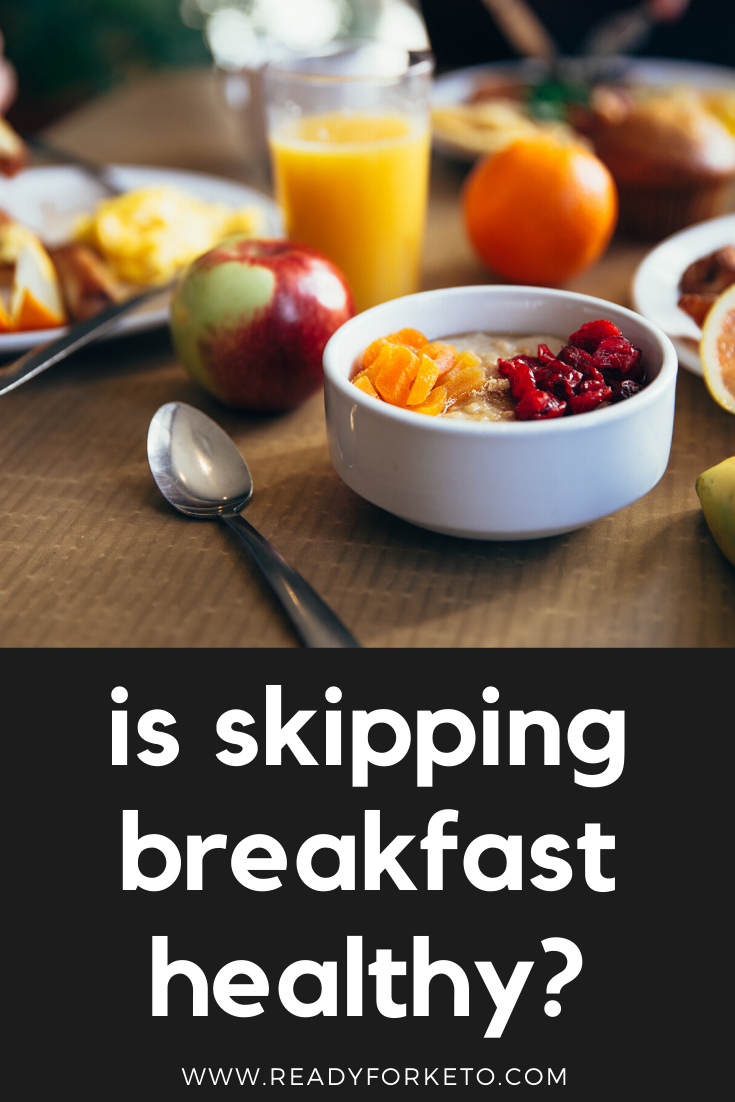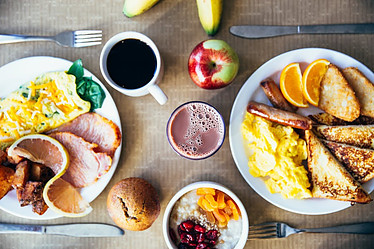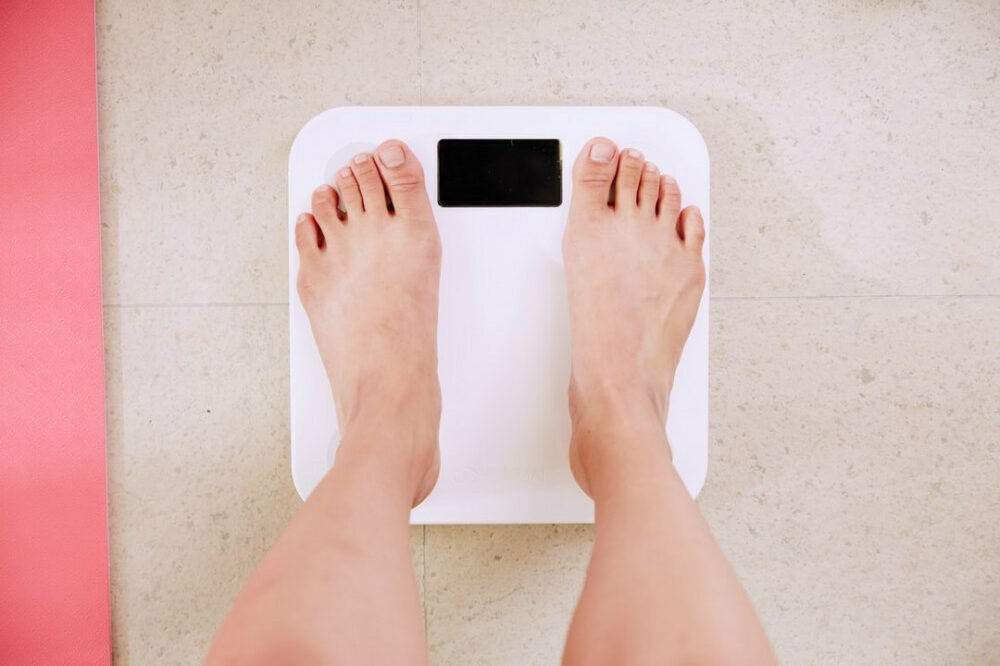Breakfast seems to many people to be virtually indispensable. But is this early meal really healthy for us? Is it possible to skip breakfast?
Today we talk about if skipping breakfast is healthy, how important breakfast really is, and what science says about it.

No matter whether crispy cereal, creamy yogurt, sandwiches or fresh fruit: “breakfast is the most important meal of the day” for many people.
This myth is widespread in our society. Breakfast is perceived as healthy and is supposedly more important than any other meal of the day.
Most official dietary guides recommend that we eat a healthy breakfast.
It is claimed that breakfast helps us to lose weight and that skipping breakfast increases our risk of overweight and obesity.
Our body is not necessarily dependent on breakfast: the blood sugar level is usually high enough for several hours after waking up anyway.
New scientific studies have begun to question that universal advice that everyone should eat breakfast.
In this article, we take a detailed look at breakfast, and whether skipping breakfast really does worsen your health and make you gain weight or if skipping breakfast is actually even healthy!
People Who Eat Breakfast Often Have Healthier Habits
Many studies actually show that breakfast eaters generally live healthier lives. They have been found to be less likely to be overweight and have a lower risk of several chronic diseases.
Because of that, many experts claim that breakfast must be good for you.
However, these studies are so-called observational studies that cannot prove causality.
These studies show that people who eat breakfast are more likely to be healthier. But they cannot prove that breakfast is responsible for this!
It is possible that people who eat breakfast have other healthy habits that can explain this.
For example, people who eat breakfast also tend to eat a healthier diet with more fiber and micro nutrients.
On the other hand, people who avoid breakfast tend to smoke more, drink more alcohol and exercise less.
Perhaps these are the reasons why breakfast eaters are healthier on average. But most likely this healthy lifestyle has nothing to do with breakfast per se.
In fact, randomized controlled trials suggest that it does not really matter whether you eat something in the morning or skip breakfast.
To sum it up:
Someone who eats breakfast is usually healthier and slimmer than someone who skips breakfast. However, this often has nothing to do with breakfast itself, but may be due to the fact that breakfast eaters have different healthy habits.
Does Skipping Breakfast Cause Weight Gain?
As mentioned earlier, people who skip breakfast tend to weigh more than people who eat breakfast.
This may sound like a paradox, because how can you gain weight by skipping a meal?
Some claim that skipping breakfast makes you very hungry, so you eat too much later in the day.
This may seem plausible at first, but is not supported by any studies or evidence.
While it is true that skipping breakfast makes you more hungry and eats more at lunch, this is not enough to overcompensate for the skipped breakfast.
In fact, some studies have even shown that skipping breakfast can reduce total calorie intake by up to 400 calories per day. This is also logical, because you are effectively removing an entire meal from your diet every day, so to speak.
This is also logical, because you are effectively removing an entire meal from your diet every day, so to speak.
This argument – eat breakfast, yes or no? – was tested in a high-quality randomized controlled trial. This study, using 309 overweight men and women as the study participants, went on for 4 months and it compared recommendations to eat breakfast or skip breakfast. After 4 months there was no difference in weight between the two groups. It didn’t matter whether the people had breakfast or skipped it.
These results are supported by other studies on the effects of breakfast habits on weight loss. Skipping breakfast had no visible effect on weight.
To sum it up:
Several studies have shown that it makes no difference whether people eat breakfast in the morning or do without breakfast. If you skip breakfast, you might eat a little more at lunch. But this amount is not enough to cause weight gain.
Breakfast Does Not Increase the Metabolism
It is often claimed that breakfast “boosts” the metabolism.
Unfortunately this is a myth. Breakfast does not automatically ensure a faster metabolism.
This claim refers to the thermal effect of food. The thermal effect of food increases the calorie burning that occurs after eating.
What is decisive for the metabolism is the total amount of food that is consumed throughout the day. It does not matter at what times or how often you eat. Whether you eat breakfast or not is irrelevant for your metabolism and fat burning.
Studies show that there is no difference in calorie burning over 24 hours between people who eat breakfast or skip breakfast.
To sum it up:
Whether you eat something in the morning or skip breakfast has no effect on the amount of calories you burn all day. So the claim that breakfast boosts metabolism and fat burning is a myth.
Skipping Breakfast Even Has Health Benefits
Skipping breakfast is a common part of many intermittent fasting methods.
These include the 16/8 intermittent fasting method, which consists of a 16-hour overnight fast and an 8-hour meal window.
This eight-hour eating window usually extends from lunch to dinner, which means you skip breakfast every day.
Numerous studies have shown that intermittent fasting effectively reduces calorie intake, increases weight loss and improves metabolism.
However, it is important to note that intermittent fasting and/or skipping breakfast is not recommended for everyone. Women who are breastfeeding or pregnant are not advised to use this fasting method. The effects also vary depending on the person.
Some people may experience positive effects with interval fasting, while others may experience mild side effects such as headaches, drop in blood sugar, fatigue and concentration problems.
However, these “side effects” of interval fasting are only temporary and disappear within a few days once the body has become accustomed to the new diet.
To sum it up:
Skipping breakfast is part of many intermittent fasting methods, such as the 16/8 method. Intermittent fasting, which includes skipping breakfast, has numerous health benefits and is very easy to follow.

Breakfast – yes or no?
The evidence is clear. There’s nothing “special” about breakfast.
It probably doesn’t matter if you eat breakfast or just skip breakfast as long as you eat a healthy diet for the rest of the day.
Breakfast does not “boost” your metabolism and skipping breakfast does not automatically cause weight gain.
This is a widespread myth based on observational studies that have now been proven wrong in randomized controlled trials.
At the end of the day, breakfast is optional and it all boils down to personal taste.
If you feel hungry in the morning and like breakfast, eat a healthy breakfast. A high-protein breakfast is best.
However, if you are simply not hungry in the morning and don’t feel the need to eat breakfast, then just don’t eat anything and just trike on your coffee.
It’s as simple as this.
Thanks for reading!
Anna
www.readyforketo.com






You are right Anna,
we all have different eating habits & patterns according to our body’s capacity of digestion & assimilation. If you feel hungry in the morning, it’s better to have a healthy breakfast.
It is always good to follow your own eating pattern than just to follow any latest eating trends. What I have read about skipping breakfast is very strange. You have mentioned that skipping breakfast is not good for everyone but findings like skipping breakfast has been associated with a 27% increased risk of heart disease, a 21% higher risk of type 2 diabetes in men, and a 20% higher risk of type 2 diabetes in women. What is your opinion on it?
Hi,
Skipping breakfast is not for everyone. Some pre-existing illnesses may effect how skipping breakfast affects you! But it has also been proven that skipping breakfast as apart of intermittent fasting can actually reduce the risk of type 2 diabetes!
As mentioned in the article, breakfast is basically optional and a matter of personal taste, it doesn’t matter whether you skip breakfast or not, as long as you eat a healthy diet for the rest of the day!
Thanks for reading!
Anna
It is funny how we get brainwashed by media and other community mobs to believe certain things, eating being one of them. The four food groups as pushed by the federal government was a direct result of lobbying in Washington DC from the agricultural community that stood to benefit from subsidies and related financial incentives. It is not that there is malice and intent to harm, it all sounded good. That’s why I love your artical piercing the assumptions of eating breakfast. It sounds reasonable, but is there a causation relationship to good health. It is an overal holistic approach that matters.
Exactly! Just because it’s an “official” nutrition guide doesn’t mean it is 100% correct!
Thanks for reading, Robert!
It sure does give me a sigh of relief knowing that skipping breakfast doesn’t have any negative effects on your health. But from my personal point of view, I tend to mostly feel weak for the rest of the day if I miss my morning crunch!
Maybe that’s how my body works Haha.. or it can be due to the fact that my diet consists of low calorie food for the rest of the day! But given the pandemic and all that I would say that filling your belly the first thing in the morning can give you one heck of a boost!
Thanks for sharing!
Best wishes,
Nithin
That could be the case! If the food your eating the rest of the day isn’t enough, you will definitely experience a slow down.
I know for me it depends on my schedule usually if I have breakfast or not. I usually don’t mind skipping breakfast and have no problems, but some days where I am very active, it’s not enough!
Thanks for reading!
Thanks for this, full disclosure I write a Paleo Blog planpaleo. But I do not see the two lifestyle choices as competitors. In fact I follow Paleo and my wife follows Keto. I am an advocate of a healthy lifestyle first and whatever diet regime you feel most comfortable and happy with to suit your body type and your metabolic physiology.
On the subject of breakfast; I went twenty years without eating breakfast in the morning. When I started research ing and then practicing Paleo I started eating a good breakfast every morning. It has changed my metabolism made me much more clear headed during the day and my weight is under much better control as my insulin levels are more balanced which means my glycemic index is more efficient.
Thanks
Hamish
Skipping breakfast isn’t for everyone, some experience many benefits from it, others not so much. As long as you eat healthy and not too much as a total for the day, the choice is yours on whether you like breakfast or not 🙂
Thanks for reading and good luck on your paleo journey!